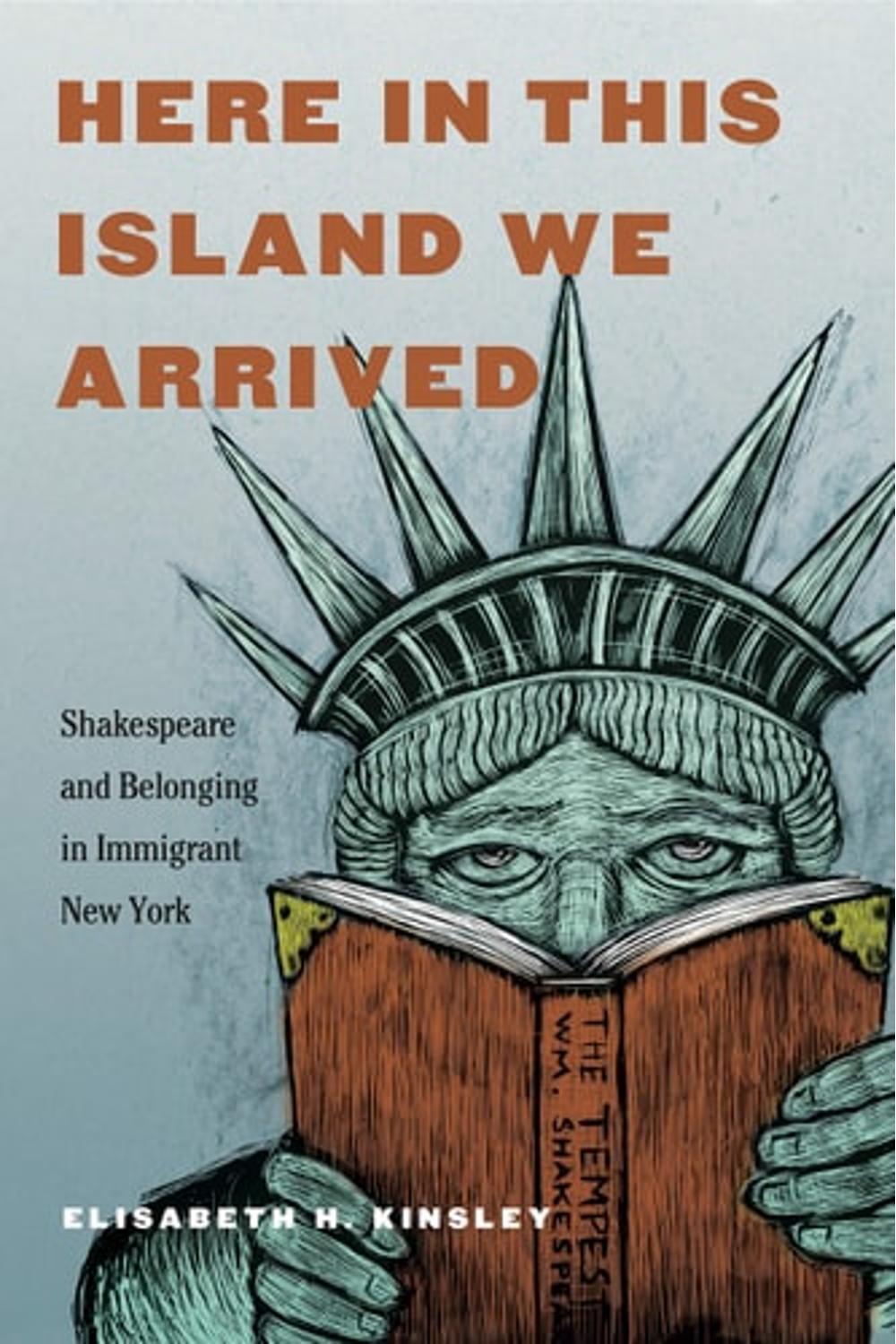**Rediscovering Shakespeare’s Immigrant Echoes: _Here in This Island We Arrived_ by Elisabeth H. Kinsley** Unearth a captivating chapter of New York City’s past in Elisabeth H. Kinsley’s _Here in This Island We Arrived_. This insightful book unveils how Shakespeare’s plays became a surprising focal point for immigrant communities navigating the complexities of early 20th-century America. Challenging conventional narratives of assimilation, Kinsley reveals how diverse groupsfrom German theater societies to burgeoning African American troupesembraced, adapted, and even subverted Shakespeare to express their identities, voice their concerns, and forge a sense of belonging. Through meticulous research of archival materials like playbills and reviews, Kinsley paints a vivid portrait of New York’s theater scene as a dynamic space where Shakespearean performances sparked dialogue on race, class, and citizenship. Explore how these performances served as both a reflection and a catalyst for social change, offering a nuanced perspective on the immigrant experience and the evolving concept of American identity. _Here in This Island We Arrived_ is a compelling read for anyone interested in theater history, immigrant studies, or the enduring legacy of Shakespeare in shaping American culture. Discover how the Bard’s words resonated with those seeking a new home, offering them a stage to redefine their place in the world.
Here in This Island We Arrived: Shakespeare and Belonging in Immigrant New York
22,72 $
In stock
In this book, Elisabeth H. Kinsley weaves the stories of racially and ethnically distinct Shakespeare theatre scenes in late nineteenth- and early twentieth-century Manhattan into a single cultural history, revealing how these communities interacted with one another and how their work influenced ideas about race and belonging in the United States during a time of unprecedented immigration.
As Progressive Era reformers touted the works of Shakespeare as an antidote to the linguistic and cultural mixing of American society, and some reformers attempted to use the Bards plays to Americanize immigrant groups on Manhattans Lower East Side, immigrants from across Europe appropriated Shakespeare for their own ends. Kinsley uses archival material such as reform-era handbooks, theatre posters, playbills, programs, sheet music, and reviews to demonstrate how, in addition to being a source of cultural capital, authority, and resistance for these communities, Shakespeares plays were also a site of cultural exchange. Performances of Shakespeare occasioned nuanced social encounters between New Yorks empowered and marginalized groups and influenced sociocultural ideas about what Shakespeare, race, and national belonging should and could mean for Americans.
Timely and immensely readable, this book explains how ideas about cultural belonging formed and transformed within a particular human community at a time of heightened demographic change. Kinsleys work will be welcomed by anyone interested in the formation of national identity, immigrant communities, and the history of the theatre scene in New York and the rest of the United States.
| Authors | |
|---|---|
| Binding | |
| Condition | |
| ISBN-10 | 0271083220 |
| ISBN-13 | 9780271083223 |
| Language | |
| Pages | 216 |
| Publisher | |
| Year published | |
| Weight | 486 |
| Edition | 1 |
Related products
The Pocket Book of Boosh
15,16 $EMPIRE STRIKES BACK, THE
22,86 $
- Additional information
- Currencies
- USD – United States dollar
- EUR – Euro
- GBP – Pound sterling
- CNY – Chinese yuan
- BRL – Brazilian real
- MXN – Mexican peso
- JPY – Japanese yen
- PHP – Philippine peso
- THB – Thai baht
- PLN – Polish złoty
- CAD – Canadian dollar
- MYR – Malaysian ringgit
- AUD – Australian dollar
- TWD – New Taiwan dollar
- CZK – Czech koruna
- SEK – Swedish krona
- HUF – Hungarian forint
- ILS – Israeli new shekel
- CHF – Swiss franc
- HKD – Hong Kong dollar
- DKK – Danish krone
- SGD – Singapore dollar
- NOK – Norwegian krone
- NZD – New Zealand dollar





